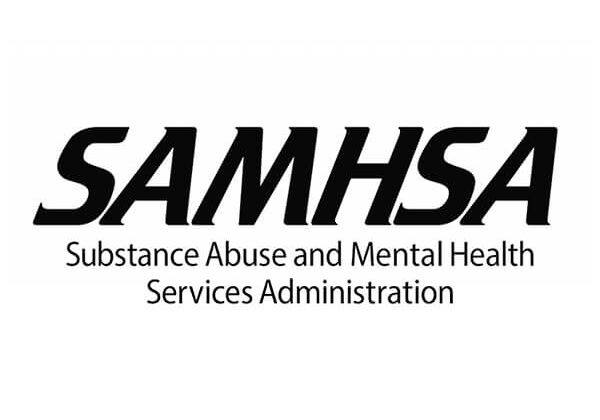Opioid Treatment Janesville, WI

Take Control of Your Life With Opioid Treatment
Opioid addiction has become an increasingly serious problem in Janesville, Wisconsin. The numbers are startling - since 2000, the average rate of opioid-related deaths in the United States has quadrupled, and according to recent data, opioid addiction is the leading cause of death in Wisconsin. With the help of opioid treatment, individuals struggling with opioid use disorder can take control of their lives and find effective ways to manage their condition.
Opioid treatment is designed to provide patients with comprehensive care that includes a combination of medication-assisted therapy, counseling, and other supportive services. Through this approach, patients can address both the physical and psychological effects related to opioid addiction while learning important skills for managing cravings and avoiding relapse.
By understanding the potential risks associated with opioids as well as available treatments like medication-assisted therapy (MAT) or cognitive behavioral therapy (CBT), individuals in Janesville can make informed decisions about their health and well-being.
What Is Opioid Addiction?
Opioid addiction, also known as opioid use disorder (OUD), is a chronic and relapsing disease that can affect anyone. It is characterized by an inability to stop using opioids despite serious negative consequences. According to the Centers for Disease Control and Prevention (CDC), since 2001, more than 48 million Americans have abused opioids. From 2017-2018 alone, an estimated 11.4 million people misused prescription opioids in the United States – a 30% increase from 2002-2003. Additionally, more than 130 people die every day due to opioid overdoses in America.
Signs and Symptoms of Opioid Abuse and Addiction
Opioid abuse and addiction signs and symptoms can be difficult to identify, as they vary from person to person and depend on individual circumstances. However, if you or someone you love is struggling with an opioid use disorder, it’s important to recognize certain warning signs so that appropriate treatment can be sought out. Common indicators of opioid abuse include:
Behavioral Symptoms:
Physical Symptoms:
Cognitive Symptoms:
Psychosocial Symptoms:
Potential Risks and Side Effects of Opioids
Opioids are powerful drugs and can be very dangerous when misused or taken in excess. Common side effects of opioids include drowsiness, nausea, constipation, and slowed breathing. It is important to understand the potential risks associated with opioid use and to use them only under the supervision of a healthcare provider.
Physical Dependence
The physical dependence on opioids occurs when the body gets used to having opioids in its system, leading to withdrawal symptoms if the drug is stopped abruptly.
Cognitive Decline
Chronic opioid use can lead to cognitive decline as it affects parts of the brain involved in decision-making, memory, and learning.
Mental Health Issues
Long-term opioid abuse can cause mental health issues such as depression and anxiety due to changes in neurotransmitter levels that occur with opioid use.
Increased Risk of Overdose
Opioid abuse increases one’s risk of overdosing due to tolerance buildup and a higher dosage needed for desired effects or because of mixing drugs with other substances or medications.
Liver Damage
Chronic opioid abuse can also damage liver cells by causing inflammation which leads to scarring known as fibrosis, which may eventually lead to cirrhosis – a severe form of liver disease with no cure available at the present time.
Heart Problems
Opioid abuse has been linked with an increased risk for heart problems such as congestive heart failure (CHF) or cardiac arrest due to slowing down the breathing rate, which reduces the oxygen supply necessary for the proper functioning of organs, including the heart.
Treatments Available for Opioid Addiction

While no single treatment method is right for everyone, there are various treatments available to help people suffering from opioid addiction. The most common treatments include medication-assisted treatment, which combines medications with counseling, support, and behavioral therapies. Other treatments include traditional therapies such as cognitive-behavioral therapy (CBT) and other forms of psychotherapy.
Is Medication Assisted Therapy Effective for Opioid Addiction?
Medication-assisted therapy is an evidence-based treatment option for opioid addiction that has proven to be effective in helping individuals manage their condition and achieve long-term recovery. MAT can help reduce cravings and withdrawal symptoms while promoting abstinence from opioid use. By utilizing this approach, individuals can regain control of their lives while improving overall mental health and well-being. Additionally, MAT can help reduce the risk of overdose, HIV infections, hepatitis C infections, criminal activity associated with opioid addiction, and more – making it a safe pathway to recovery for those struggling with opioid addiction.
Here are some of the key benefits of MAT for Opioid Use Disorder:
- Reduces cravings and withdrawal symptoms
- Promotes abstinence from opioid use
- Allows individuals to regain control of their lives
- Improves overall mental health and well-being.
- Enhances the effectiveness of psychosocial interventions
- Increases social functioning and stability in life roles
- Decreases risk of overdose, HIV, hepatitis C infections, and other related diseases
- Improves quality of life by reducing criminal activity associated with opioid addiction
- Provides a safe pathway to recovery for long-term success
- Helps individuals stay on track with their treatment plan
Can Cognitive Behavioral Therapy (CBT) Help With Opioid Use Disorder?
Cognitive Behavioral Therapy (CBT) focuses on identifying, challenging, and changing negative thinking patterns as well as behaviors associated with opioid use disorder. CBT may also help to reduce negative emotions associated with opioid withdrawal, such as depression and anxiety. By helping individuals develop healthier coping strategies, CBT can be a powerful tool in long-term recovery from opioid use disorder.
How to Talk to a Loved One Struggling With an Opioid Use Disorder

Talking to a loved one about opioid use disorder can be difficult and uncomfortable, but it is an important step in getting them the help they need. It’s essential to approach the conversation with compassion and understanding, as well as being prepared for potential challenges that may arise during the discussion. By taking time to understand your loved one's situation, offering support rather than judgment, and providing resources on available treatments such as MAT or CBT, you can help your loved one take steps towards recovery from opioid addiction.
1. Approach the Conversation With Compassion and Understanding
Approaching a loved one struggling with an opioid use disorder can be both difficult and uncomfortable. It is important to approach the conversation with understanding and compassion, as it can help create a safe environment for your loved one to talk openly about their experiences with opioid addiction.
2. Listen without Judgement
When talking to a loved one about their opioid use disorder, it is important to avoid judgment or criticism. Instead, focus on listening to what they have to say and providing emotional support and understanding. Listening without judgement can help your loved one feel more comfortable speaking openly about their struggles with opioid use disorder.
3. Provide Resources
While it’s important to offer support and understanding, it is also important to provide your loved one with resources for treatment so that they have access to the help they need. Provide information on available treatments. You can also suggest support groups, online forums, and other resources for individuals struggling with opioid use disorder.
4. Offer to Help
It’s important to offer your loved one help if they need it. If they are ready to seek treatment, ask them what you can do to support them. Offer to help them research treatment options and provide assistance with making appointments or transportation if needed.
Take the First Step Towards Recovery
Understanding, preventing, and treating an opioid use disorder is a complex process that requires knowledge, education, and resources. If you or someone you care about is living with opioid use disorder, understanding the risks associated with opioid use and how to get help can be a difficult journey.
At AMS of Wisconsin-Janesville, LLC, we are dedicated to helping individuals struggling with opioid use disorder and their loved ones find the information, support, and treatment they need to lead healthier lives.
We provide resources such as educational materials on understanding addiction, signs of opioid abuse, and the risks associated with opioid use disorder. We also provide links to additional resources such as support groups, treatment centers, and other helpful.
Take the first step towards recovery today. Contact us to learn more about our opioid treatment services and find out how we can help you or your loved one get back on track.
Our Treatments
Questions About Treatment?
Get confidential help today.
- Access to licensed treatment centers
- Information on treatment plans
- Financial assistance options
Our Treatment Centers
What People Are Saying About Us Online




